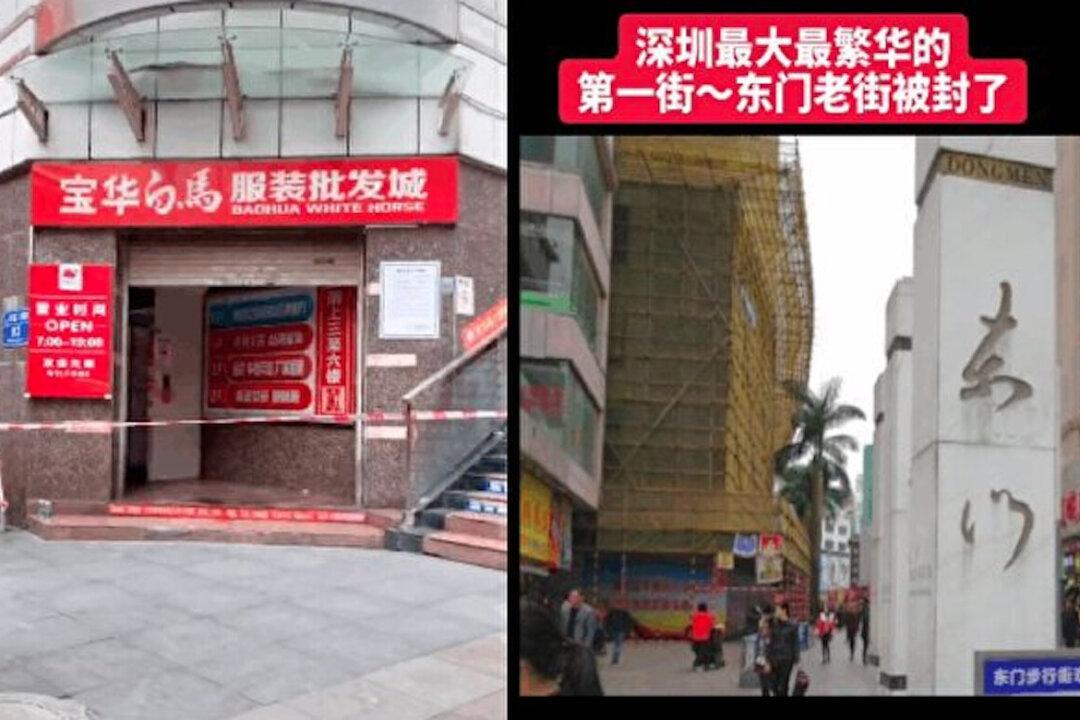The COVID-19 epidemic in Guangdong province continues to worsen. The Epoch Times has learned that one of the busiest commercial streets in the megacity of Shenzhen has just been closed due to infection. Meanwhile, in the provincial capital of Guangzhou city, food and medicine shortages have been reported in locked-down areas.
On June 2, posts about a COVID-19 case in the Baima clothing wholesale market in Luohu District, Shenzhen, were circulating on Chinese social media. They said that the customer was a visitor from Guangzhou. It has caused a major commercial street—the East Gate Pedestrian Mall where the clothing market is located—to be closed down.




